
by admin
12 New Books About Contemporary Jewish Identity — All by Women!
The cover of the New York Times Book Review this weekend features a review of 5 recent books detailing the American Jewish experience — all of which were written by men. As illuminating as each of those books may be individually, and as deeply as the review engages with them, their aggregation egregiously leaves out the experiences and perspectives of approximately half of American Jews (if not more!).
Critics on Twitter immediately noted how unfortunate it is that the piece didn’t at the very least call attention to the cutting-edge academic scholarship and writing by many Jewish women, including feminists.
But the debate goes beyond academic (specialized) vs. trade (general audience) dichotomies. In 2018, it’s simply not enough to throw up ones hands and say, “There aren’t enough trade books by women!” The critic’s job is, in part, to wrestle with why trends in an industry exist, and to therefore, in this case, ask what truths five books by white Ashkenazi men might all be missing about contemporary Jewish identity.
Luckily, recent and forthcoming books that do show a different perspective aren’t too hard to come by. Below, we’ve aggregated a far from exhaustive list of 12 books written by women (not just academics, by the way,) that address these urgent issues–all published since 2017. They follow, in no particular order. Publishers and critics, take note.
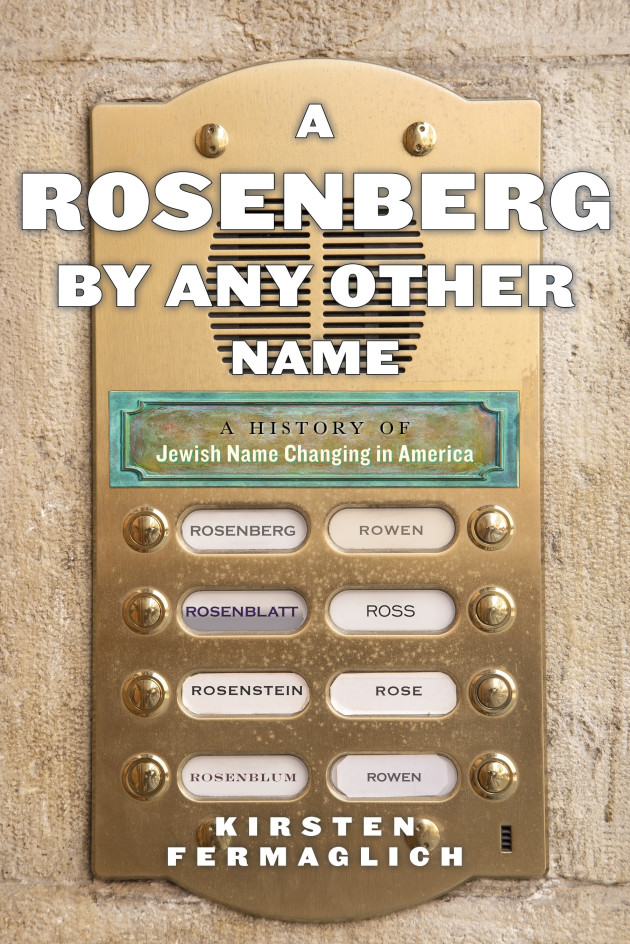 A Rosenberg by Any Other Name: A History of Jewish Name Changing in America by Kirsten Fermaglich (Oct 2018)
A Rosenberg by Any Other Name: A History of Jewish Name Changing in America by Kirsten Fermaglich (Oct 2018)
In the 20th century, faced with antisemitism and the potential of assimilation into the white middle class, many European Jewish immigrants chose to change their names to less obviously Jewish ones. Fermaglich analyzes the effects of those names changes on the individuals and families who altered and kept their names— and how the high amounts of changed names impacted American culture.
Feeling Jewish (A Book for Just About Anyone) by Devorah Baum (2017)
What does it mean to “feel Jewish?” And can only Jews feel that way? In Feeling Jewish, Devorah Baum analyzes representations of Jews in the media, famous American Jews, and her own upbringing as a Jewish woman to try and answer that questions, arguing that perhaps in today’s world, people from many different types of backgrounds can “feel Jewish” as well.
Making Judaism Safe for America: World War I and the Origins of Religious Pluralism by Jessica Cooperman (2018)
Programs developed during World War I for the benefit of soldiers had profound impacts on the way Jews integrated into American society, argues Cooperman.
Jewish Radical Feminism: Voices from the Women’s Liberation Movement by Joyce Antler (2018)
In Jewish Radical Feminism, Joyce Antler provides biographies of more than 40 Jewish feminists (including Lilith founding mothers!) whose writing and activism was key both to the feminist movement as a whole and to the creation of specifically Jewish feminist narratives.
America’s Jewish Women: A History from Colonial Times to Today by Pamela S. Nadell (Forthcoming 2019)
From the earliest days of American history, Jewish women have been defining and redefining what it means to be an American Jew. Nadell describes the history of many of these women, intertwined with their American context. We can’t wait to read this one.
My Jewish Year, Abigail Pogrebin, (2017).
This book by Lilith writer Pogrebin did get the New York Times treatment: “ Pogrebin strives valiantly throughout the year, learning (she interviewed more than 60 rabbis and scholars) and breaking stereotypes of our tradition, as when she blesses a woman sitting next to her at a feminist Seder on Passover,” wrote the (male) critic.
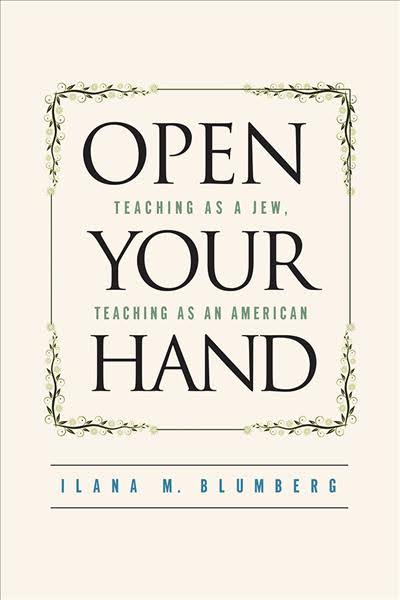 Open Your Hand: Teaching as Jew, Teaching as an American. Ilana Blumberg (2018)
Open Your Hand: Teaching as Jew, Teaching as an American. Ilana Blumberg (2018)
Blumberg writes about the intersection of her national and religious identities with her philosophy of education in this memoir. Read her piece about raising American children in Israel in Lilith.
Jewish New York: The Remarkable Story of a City and a People by Deborah Dash Moore, Jeffrey S. Gurock, Annie Polland, Howard B. Rock, Daniel Soyer, and Diana L. Linden (2017)
There has been a Jewish presence in New York City since before it was even called New York City. Not only did Jews transform New York City both financially and culturally, these authors argue, New York City transformed Judaism, creating spaces both for assimilation and for self-isolation.
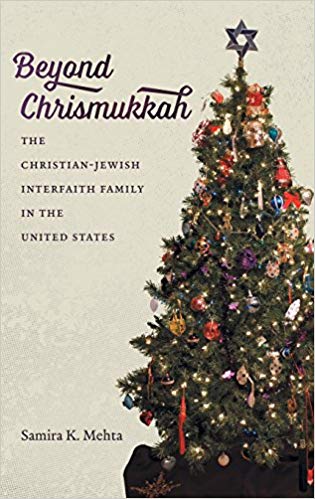 Beyond Chrismukkah: The Christian-Jewish Interfaith Family in the United States, by Samira K. Mehta (2018)
Beyond Chrismukkah: The Christian-Jewish Interfaith Family in the United States, by Samira K. Mehta (2018)
An important corrective to narratives lamenting intermarriage. “While other sources on this topic consider Christian-Jewish marriage in the context of US Judaism or with a focus on theology alone, this book is unique for placing its discussion of interfaith marriage within the context of trends in US history overall, such as increasing religious diversity, decreasing religious affiliation, combining practices from multiple religious traditions… and so on,” wrote one critic.
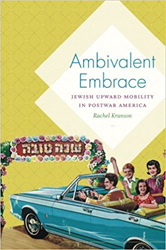 Ambivalent Embrace: Jewish Upward Mobility in Postwar America, Rachel Kranson (The University of North Carolina Press. 2017)
Ambivalent Embrace: Jewish Upward Mobility in Postwar America, Rachel Kranson (The University of North Carolina Press. 2017)
A hugely important and “lively” book, examines the “jeremiads of rabbis, Zionists, Yiddishists, political radicals, feminists, members of the counterculture, and academicians and intellectuals who claimed that Jews had made a bad bargain by exchanging their political radicalism, religiosity, and cultural richness for the blandness, materialism, conformity, and political conservatism of the prosperous society of suburbia,” writes the Jewish Book Council.
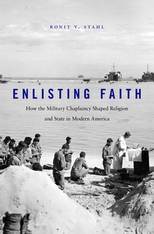
Enlisting Faith: How the Military Chaplaincy Shaped Religion and State in Modern America Ronit Y. Stahl (2017)
A history of the chaplaincy that parallels the history of Judaism’s acceptance into the mainstream, “Enlisting Faith” “deserves to be read by anyone interested in an underexplored aspect of the intersection of religion and the state,” wrote the Wall Street Journal.
Masculinity and the Making of American Judaism, Sarah Imhoff, (2017)
“We surely don’t need another book that studies men because it assumes their thoughts and experiences obviously represent everyone’s thoughts and experiences, or one that assumes that men are the default human beings and women are a special case,” Imhoff told Religion Dispatches in 2017. “But this book is about masculinity, and it unearths cultural assumptions about what it meant to be a man in general and a Jewish man in particular. Studying masculinity in this way is crucial to having a larger understanding of how gender work .”
The views and opinions expressed in this article are the author’s own and do not necessarily reflect those of Lilith Magazine.
